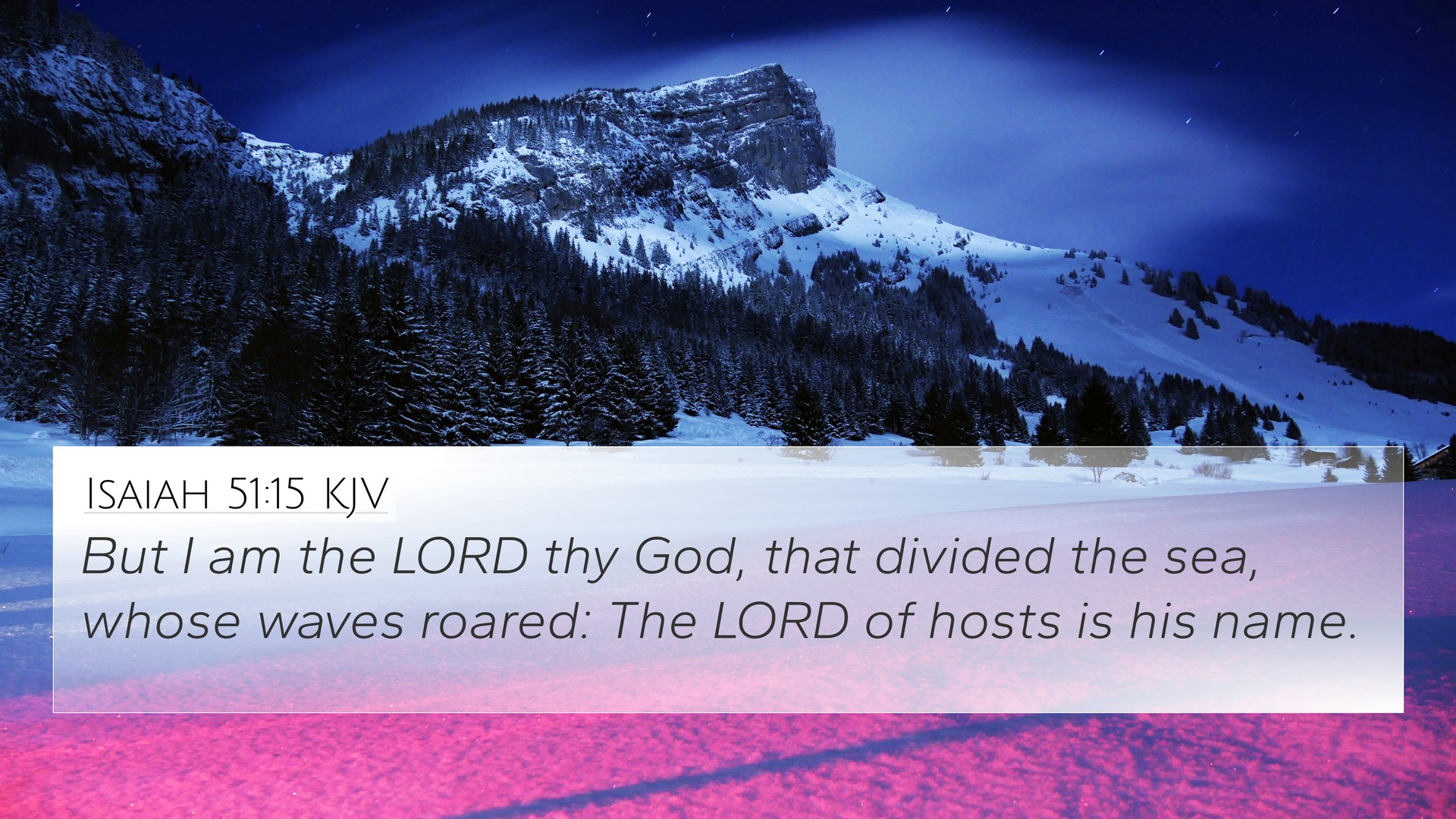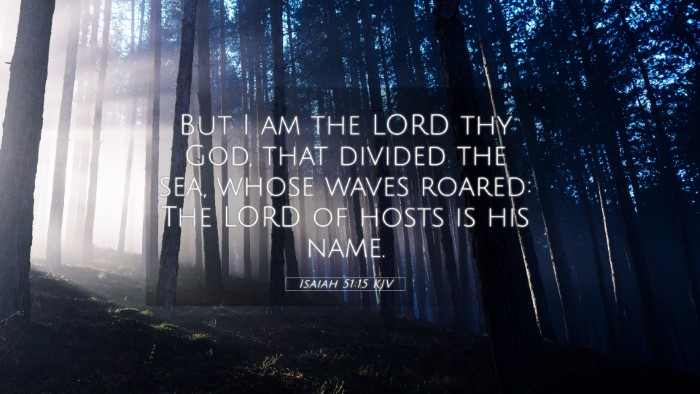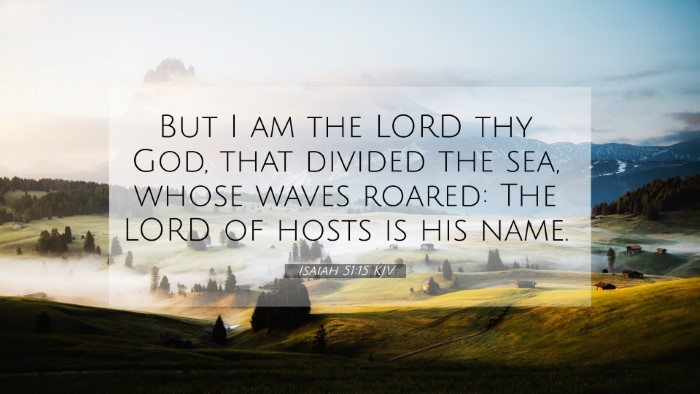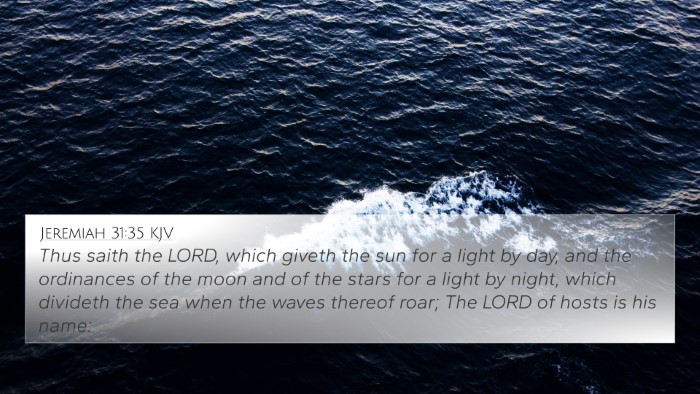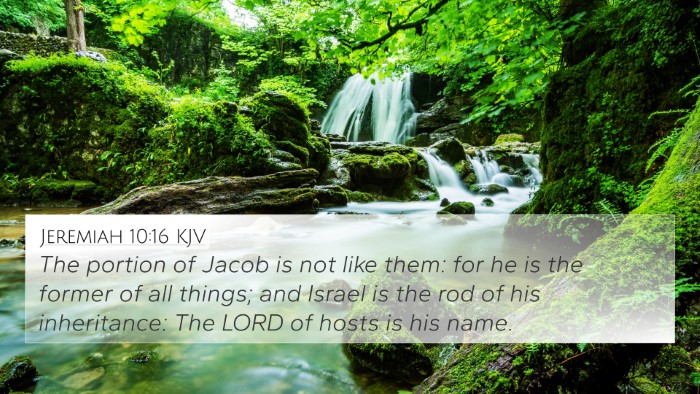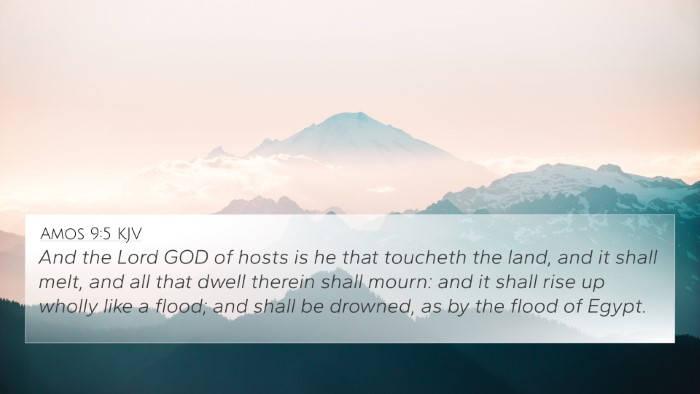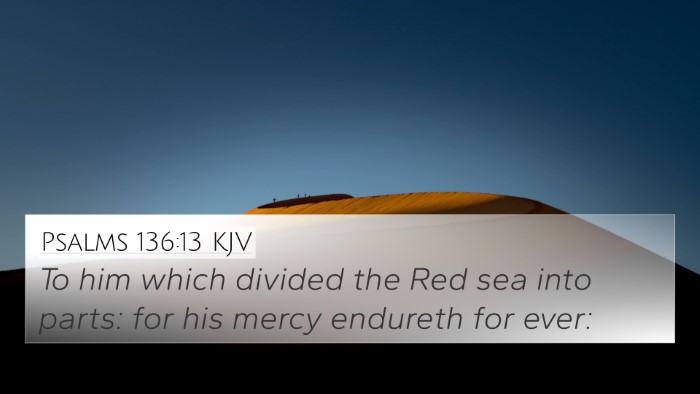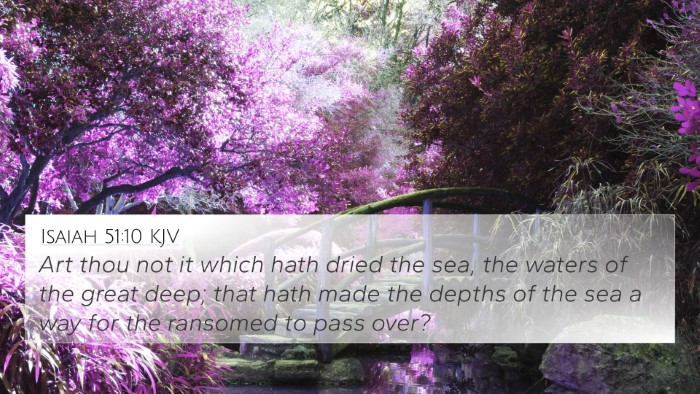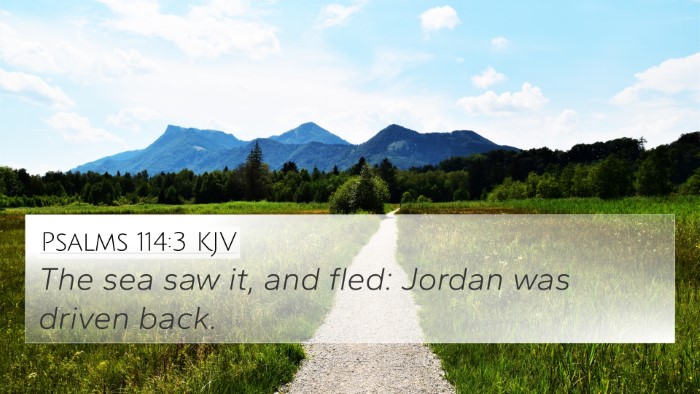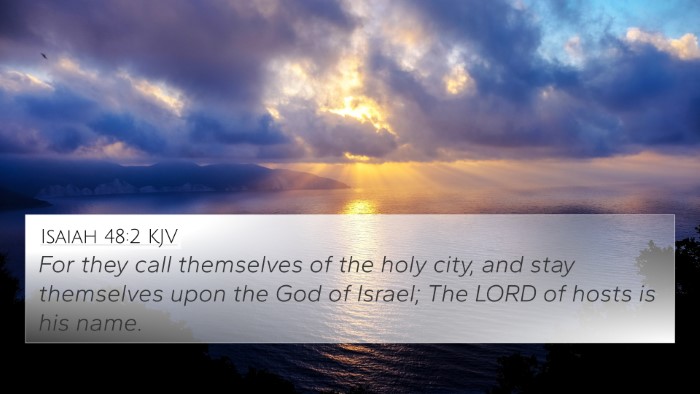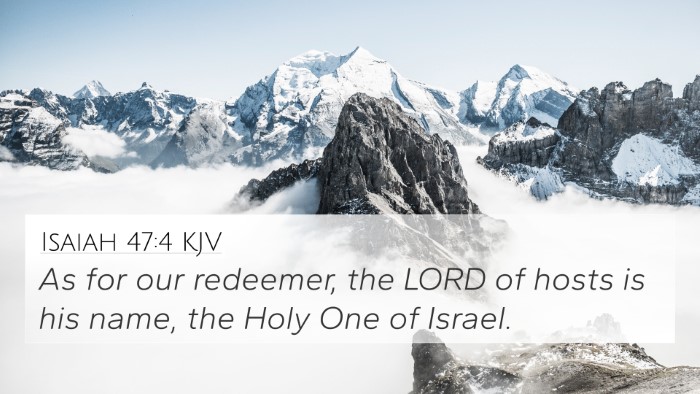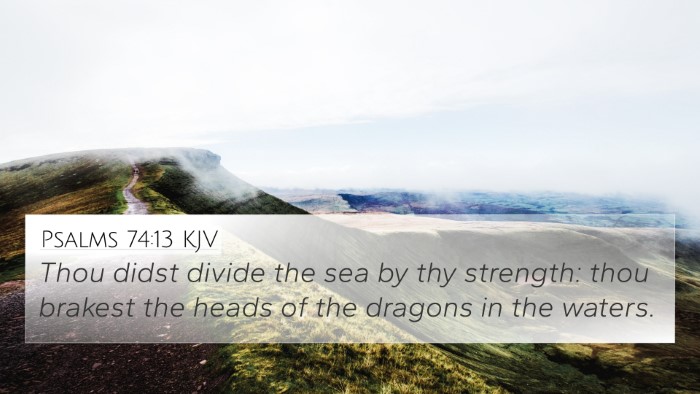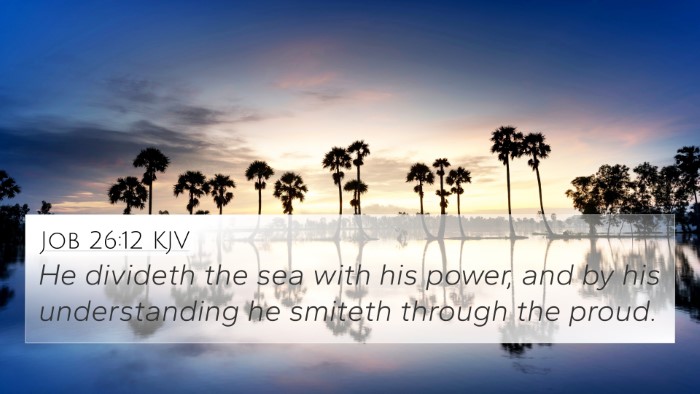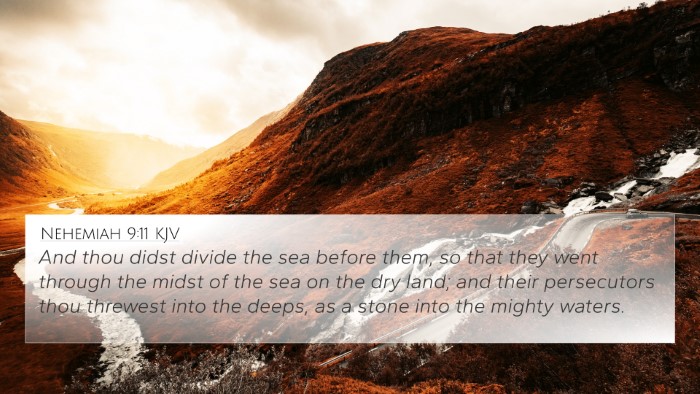Understanding Isaiah 51:15
Isaiah 51:15 states, “But I am the Lord your God, who stirs up the sea so that its waves roar— the Lord Almighty is his name.” This verse carries profound meaning, encapsulating God's sovereignty, power, and presence in the midst of turmoil.
Interpretation from Commentaries
-
Matthew Henry:
Matthew Henry emphasizes that God is in control over nature and the elements, demonstrating His omnipotence. The reference to "the sea" symbolizes chaos and tumult, which God can command. Henry points out that God’s ability to stir the sea and make its waves roar is a metaphor for His capacity to intervene in our lives, no matter how chaotic they may seem.
-
Albert Barnes:
Albert Barnes notes the significance of God identifying Himself as the Lord and emphasizes that the name evokes fear and reverence. Barnes draws connections to God’s omnipotent nature, indicating that just as He has power over the physical realm, He similarly governs the spiritual realms in the lives of His people.
-
Adam Clarke:
Adam Clarke elaborates on the phrase “the Lord Almighty,” highlighting it as a declaration of God's ultimate authority. Clarke speaks to the comfort found in knowing that the Lord is actively involved in the affairs of men and holds the power to change our circumstances, portraying God's readiness to intervene and support His people in their time of distress.
Thematic Connections and Cross-References
This verse forms thematic connections across various Biblical narratives that explore God’s sovereignty and intervention. Below are notable cross-references that underline these themes:
- Job 38:8-11: God speaks to Job about His creation, particularly addressing His control over the sea.
- Psalms 89:9: “You rule over the surging sea; when its waves mount up, you still them.” This verse reflects God's authority over chaos, paralleling Isaiah 51:15.
- Mark 4:39: Jesus calms the storm, showcasing divine authority over nature, echoing God's control in Isaiah.
- Revelation 21:1: Describes a new heaven and earth, where the sea is no more, reflecting the ultimate end of chaos.
- Isaiah 43:2: “When you pass through the waters, I will be with you,” affirming God’s presence in adversity.
- Exodus 14:21: God parts the Red Sea, proving His might over natural elements.
- Psalms 107:29: “He stilled the storm to a whisper; the waves of the sea were hushed.” This verse parallels God’s control over chaotic seas in Isaiah 51:15.
Tools for Understanding Cross-References
Utilizing tools and resources for Bible cross-referencing can enhance your study and understanding of respective verses. Here are some effective tools:
- Online Bible Concordance: Helps locate verses and associated references.
- Bible Cross-Reference Guide: A comprehensive reference for navigating themes across scriptures.
- Cross-Reference Bible Study: Techniques to explore connections between verses.
How to Use Bible Cross-References
To deepen your understanding of verses like Isaiah 51:15, consider these steps:
- Determine the central theme or word in the verse.
- Utilize a Bible concordance to find related verses.
- Engage in comparative analysis with linked scriptures to draw parallels.
Further Study and Reflection
Reflecting on Isaiah 51:15 provides an opportunity to grasp the magnitude of God’s presence and power in our lives. Engage with the inter-Biblical dialogue by exploring how God’s actions in the Old Testament resonate through the New Testament revelations.
Conclusion
Isaiah 51:15 presents an encouraging affirmation of God’s sovereignty over creation and the chaos of life. By exploring this verse and its connections using various cross-referencing techniques, believers can gain deeper insight into God's nature and His active role in the world.
